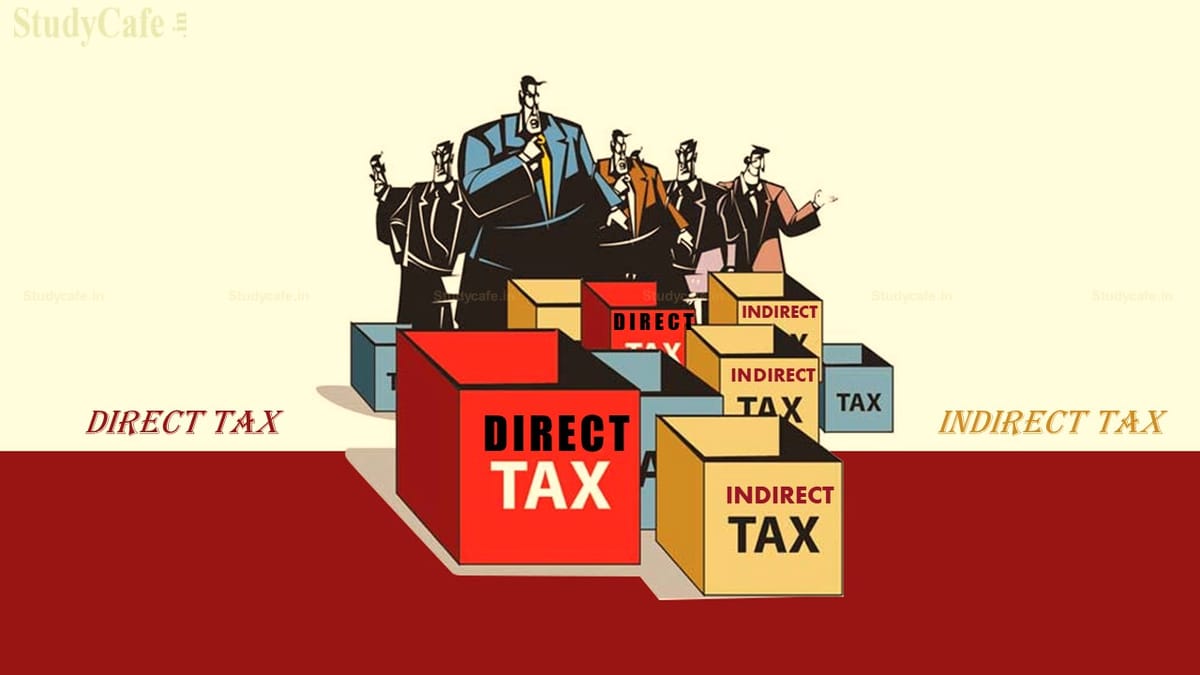Reetu | May 26, 2022 |

An Insight into Different Types of Taxes
Types of taxes, while unpopular, are critical for economic growth and development, as well as for achieving the shared goal of a prosperous and functional society. Our taxation generates revenue for the Indian government. They use the revenue to pay for essential services such as defense, law enforcement, the judiciary, public health, and infrastructure.
In general, all types of taxes revenue is used to fund the country’s recurring and non-recurring expenses. Recurring expenses include salaries paid to government employees and others. Non-recurring expenses are used to develop the country’s long-term assets.
Income tax is a percentage of an individual’s or business’s income according to the tax slab they fall, that percentage is paid to the government to help run the country smoothly, fund infrastructure development, and pay the salaries of state and federal employees, among other things. All of these types of taxes are imposed pursuant to the passage of legislation.
Income tax is the only direct method of taxation, as opposed to capital gains tax, securities transaction tax, and so on. We also pay a variety of additional indirect taxes, including the Goods and Services Tax (GST), sales tax, VAT, Octroi, and service tax.
There are two primary types of taxes in India: direct tax and indirect tax.
Direct tax is one of the types of taxes that are levied directly on the taxpayer. This is a non-transferable license. Income tax is a common type of direct tax that is levied on an individual’s income in accordance with the income tax slab. In simple terms as long as you earn money, you will have to pay taxes on it. You cannot assign your tax liability to another person.
The Central Board of Direct Taxes (CBDT) administers direct tax in India, which is governed by the Department of Revenue.
Indirect taxation, on the other hand, is one of the types of taxes levied on goods and services rather than on income. It is assessed against one taxpayer and remitted to the other. GST, for instance, is levied on merchants and manufacturers of goods and services. However, as a consumer, you are responsible for paying the GST on such goods and services.
In India, indirect taxes are managed by the Central Board of Indirect Taxes and Customs (CBIC), which is also governed by the Department of Revenue.
Direct and Indirect taxes are the two types of taxes in the Indian tax system. These two taxation systems are distinct from each other in the following ways:
Your income is subject to direct taxation. Thus, it is dependent on your income and varies between taxpayers. But indirect tax is levied on goods and services even though they bear no relation to your earnings.
Direct taxation is levied directly on the taxpayer. However, indirect tax is not levied directly on the consumer. It is levied on goods and services and is payable when the consumer consumes them.
The amount of direct tax you pay is determined by your income. The greater the income, the greater the tax payable, and vice versa.
Generally, indirect tax is the same for all consumers, regardless of their income. The rate is subject to change based on the nature of the goods and services.
Direct tax liabilities cannot be transferred to another taxpayer. However, indirect tax can be transferred between taxpayers. For instance, GST is paid by the business but is then passed on to the consumer who conducts business with the business.
It is possible to evade paying direct tax if you conceal or underreport your income. However, indirect taxation is impossible to evade.
Direct taxes are more complicated to calculate than indirect taxes. You must keep in mind the various income tax provisions to calculate and file your taxes correctly. Corporate tax filing becomes more complicated since different rules apply to determining income.
However, indirect tax is straightforward to calculate and pay. The government has established a fixed rate of taxation on goods and services that can be easily calculated.
Direct tax is levied on income earned during a fiscal year. Direct taxes have a due date.
Indirect taxes are not collected on a set schedule. They are collected when goods and services are purchased or sold.
Direct taxation is a progressive taxation system. Increases in the taxpayer’s income result in an increase in the taxpayer’s tax liability.
However, indirect taxation is a regressive tax. If the assessee’s income increases, the tax burden decreases.
While Tax Day occurs only once a year, tax preparation can feel like a year-round job. Whether you file on your own or with the assistance of a tax professional, you should be aware of your filing obligations, types of taxes, tax slabs and the impact of your choices on your money.
If an individual is unable to file their ITR by the due date, they may file a belated return under Section 139(4) of the Income Tax Act. The facility of late ITR filing was introduced for the taxpayers’ convenience. A late ITR may be filed at any time prior to the end of the applicable assessment year.
It should be noted, however, that filing a late ITR carries a penalty. Additionally, the individual risks losing some benefits if he or she does not adhere to the e-filing of income tax returns by the deadline.
In case of any Doubt regarding Membership you can mail us at [email protected]
Join Studycafe's WhatsApp Group or Telegram Channel for Latest Updates on Government Job, Sarkari Naukri, Private Jobs, Income Tax, GST, Companies Act, Judgements and CA, CS, ICWA, and MUCH MORE!"